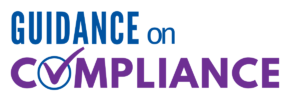The healthcare industry is regulated by a complex framework of mandates that serve to ensure providers comply with all relevant laws, policies and regulations governing their area of specialty. These regulations fall into two categories: Conditions of Payment and Conditions of Participation.
Over the next 5 weeks, we will discuss Conditions of Payment and Conditions of Participation as they affect post acute care providers.
- In week 1, we will define Conditions of Payment vs. Conditions of Participation
- In week 2, we will discuss Conditions of Payment vs. Conditions of Participation for Inpatient Rehabilitation Facilities
- In week 3, we will discuss Conditions of Payment vs. Conditions of Participation for Home Health Agencies
- In week 4, we will discuss Conditions of Payment vs. Conditions of Participation for Skilled Nursing Facilities
- In week 5, we will discuss Conditions of Payment vs. Conditions of Participation for Outpatient Physical Therapy Providers
A Brief Overview of Conditions of Payment vs. Conditions of Participation
Conditions of Payment
Conditions of payment are requirements that must be met before the government will pay a claim. Failure to comply with a condition of payment can result in a denial of the claim for payment. Or, if the payment has already been made, the amount paid on the claim is considered an overpayment that must be refunded per current law.
Conditions of Participation
Per the Centers for Medicare & Medicaid Services, Conditions of Participation (or Requirements of Participation in skilled nursing facilities) are regulations that must be met to participate in the Medicare and Medicaid program. These regulations are broad and address a myriad of issues, including patient/resident rights, staffing and supervision, assessment, care planning and delivery of patient services, quality improvement, and required policies and procedures. Failure to follow Conditions of Participation most likely will result in sanctions, monetary fines and corrective action plans. An entity may even be excluded from a federal health care program due to violations in Conditions of Participation, however, this is rare. A claim may be eligible for payment even if the provider is out of compliance with one or more conditions of participation at the time the claim is submitted, if the conditions of payment are met.
Under the Social Security Act, Medicare only reimburses for services which are “reasonable and necessary for the diagnosis or treatment of illness or injury or to improve the functioning of a malformed body member.”[42 U.S.C. § 1395y (a)(1)(A).] This is the primary foundation for conditions of payment for all service areas. The definition of what it means to provide reasonable and necessary services is not always clearly outlined.
Where to find Conditions of Payment and Conditions of Participation
Conditions of Payment are typically found in the regulations printed in Medicare manuals including the Medicare Benefit Policy Manual and the Program Integrity Manual. Conditions of Participation are outlined in the State Operations Manual (SOM) for the specific site of service. The Conditions of Participation are reviewed by the responsible certification and licensure survey entity.
About the False Claims Act (FCA)
The False Claims Act (FCA), 31 U.S.C. §§ 3729 – 3733, was enacted in 1863 by a Congress concerned that suppliers of goods to the Union Army during the Civil War were defrauding the Army. The statute begins, in § 3729(a), by explaining the conduct that creates FCA liability. In very general terms, §§ 3729(a)(1)(A) and (B) set forth FCA liability for any person who knowingly submits a false claim to the government or causes another to submit a false claim to the government or knowingly makes a false record or statement to get a false claim paid by the government. The act of submitting a claim that was false would typically fall under a violation supported by Conditions of Payment.
In recent years, there has been a trend to expand the FCA to enforce violations of rules and regulations that are related to eligibility for payment and conditions of participation. The courts must determine if the condition that has not been satisfied relates not to a prerequisite for payment but to a condition of participation.1
Why It’s Important to Know the Rules?
It is important to know both the Conditions of Payment and the Conditions of Participation for the service entity that you are managing, and to clearly follow all the rules and regulations. In the weeks to come, we will focus on the Conditions of Payment and the Conditions of Participation for the following Post-Acute Care entities:
- Skilled Nursing Facilities (SNF)
- Inpatient Rehab Facilities (IRF)
- Home Health Agencies (HH)
- Outpatient Physical Therapy (PT), Occupational Therapy (OT) and Speech and Language Therapy (SLP) Clinics
1. “Violations of Payment/Participation Conditions as Predicates for False Claims”, by Katherine A. Lauer, Jason m. Ohta, and Amy E. Hargreaves, Section of Litigation, Health Law Litigation, Spring/Summer 2011.

